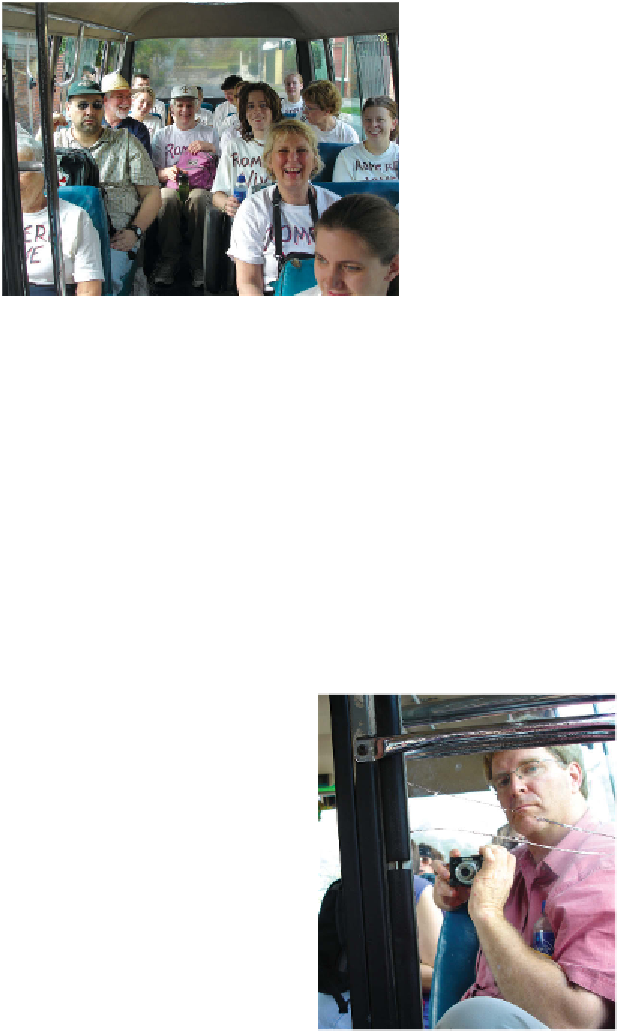Travel Reference
In-Depth Information
felt more than wealthy. I
felt elite. Looking out the
window into the Carib-
bean night, I pondered
my privileged position.
A chain of lights led to
Key West. Then, deep
in the blackness, glit-
tered the forbidden city
of Havana. The pilot's
door was locked and
fortii ed as we l ew to El
Salvador.
Landing in the capital city, San Salvador, I was met by César, who whisked
me away in his car. In his coin dish, I saw shiny Lincolns and Washingtons.
I'm never very coni dent upon arrival in a new country, and this confused me.
César explained, “We've been dollarized now since 2001.” Since my last visit
here, my coins had become the local coins. (In a kind of voluntary coloniza-
tion, local elites chose to adopt the US currency to avoid losing their personal
fortunes in case of a radical change in their government.) My hunch was that
much more had changed in El Salvador than just the currency.
Back before my i rst trip to Cen-
tral America in 1988, I specii cally
forbade my heart to get caught up
in economic justice issues south of
our border. I knew there were leftists
i ghting American-funded groups and
it was a tragic mess, but that was it.
h ere was too much pulling at me,
and the competing sides, excuses, and
complaints were all too complex and
contradictory. I just didn't have the
energy to sort it out, and I didn't need
it in my life. h en I traveled here and I
learned what h omas Jef erson meant
when he wrote that travel “makes men
wiser, but less happy.”
This bus tour is fi lled with Americans eager to learn and
hungry for inspiration.
Where and how you choose to travel de-
termines how much you'll learn. Organiza-
tions of ering “educational tours” turn the
world into a fascinating classroom.

















































































